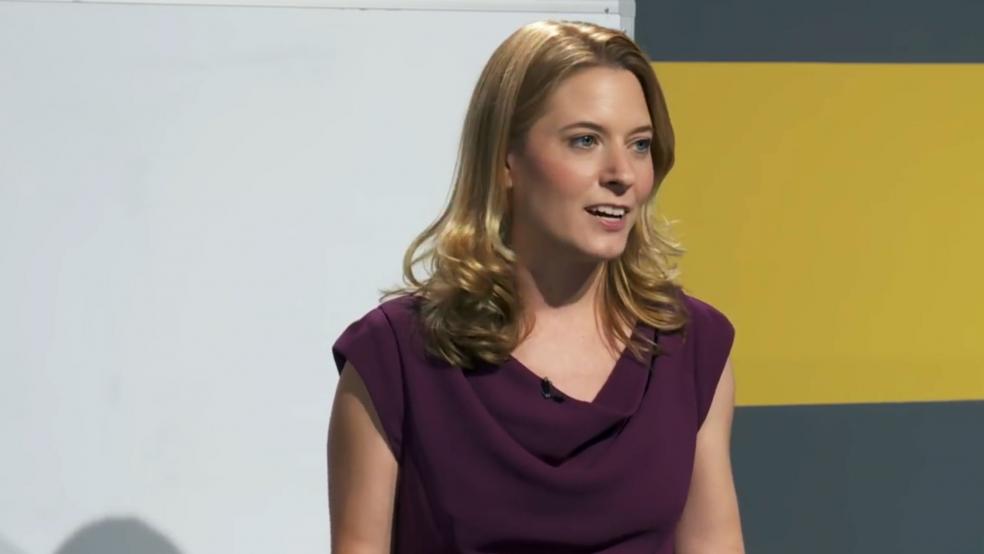Author Laura Vanderkam has made a career out of studying how people spend their time.
For her latest book, I Know How She Does It: How Successful Women Make the Most of Their Time, Vanderkam looked at how working mothers use time management to thrive both in the office and with their children.
Related: Millennial Women Are Taking Charge—at Home and at Work
The author collected more than 1,000 time logs from mothers who earn more than $100,000 per year. We talked to her about her findings, the value of a time log, and why women shouldn’t fear the ”Big Job”:
The Fiscal Times: What made you decide to focus specifically on working moms for this book?
Laura Vanderkam: In writing my previous books, I was most often drawn to the stories and strategies of people that were, like me, building careers and families at the same time, and they were very often women. I felt that the narrative of people who were doing OK with the struggle were sort of under-represented in the literature, which tends to focus on the stressful moments and the teeth-gnashing moments.
TFT: So, we need to Lean In?
LV: I am a big fan of Sheryl Sandberg’s book, and how she presents this topic. She tells young women to lean in to their careers so that when they do have kids, they’ll have an actual choice, as opposed to leaving the workplace by default. I’d add that you can lean in while you’re having your kids, too. Many big jobs actually require fewer hours than people think, and they have a lot of flexibility and autonomy (if you’re the boss, you’re in a better position to choose how to work than if you’re on the receiving end of delegation). Work and a full family life are not incompatible
TFT: What was the secret to success in balancing it all for the women in your study?
LV: The biggest thing is just being mindful of your time and where it all goes and what you might be able to do with it.
TFT: So should everyone keep a time log?
LV: Anyone can learn from keeping track of their time. If you want to spend your time better, you want to know how you are spending it now, regardless of what you earn and whether you have children. Anyone can benefit from having that sense of accountability. Just doing it for a few days or a week will give you insight into what your life truly looks like.
TFT: Did you see the recent headlines about how men sometimes makes it seem like they’re logging longer hours than they are? Should women be doing the same thing?
LV: Men will simply work the way they want to work and not talk about it. I wish that women would be more empowered to work that way in general. When you start asking for official accommodations it becomes a negotiation. Inherent in a negotiation is that you are giving up something to get what you want. You are giving up pay or promotion opportunities or career trajectory.
All you really want to do is move around your career responsibilities within the dimensions of time and space. If you can do that without giving up certain metrics, you shouldn’t have to give something up to get that.
TFT: It’s easier to shift your time around if you have a supportive employer. How can you figure out whether a new job will let you do that?
LV: If while you’re interviewing people mention things that happen in their lives outside of work, that’s a good sign that they have a life outside of work and feel comfortable talking about.
Also, don’t fear the “Big Job.” Often bigger jobs have more autonomy and flexibility than those that are lower down the scale. IF you’re getting paid six figures [like the women in this study], you are probably higher up in management and in order to attract you, your employer had to let you make your own decisions about your schedule and your time.
A lot of times we think that less demanding jobs are more compatible with family life, but often that is not true. The higher up you go, the more control you have over your time.
TFT: But what about jobs that require a lot of travel?
LV: We have these narratives that moms can’t travel. And yet there are people who are very good moms who do travel.
Maybe the question is: What kind of support system can I have that would enable me to travel and have my children thrive when I am not there. And how can I structure my life so that I can still spend time with my family when I am around.
One woman consciously made a deal with herself to work long hours when she was traveling so that when she was home she could work much shorter days and be there to do things like bring her kid to school and have a family game night.
She was creative about her time, too. She had her two daughters take piano lessons at the same time at the same studio so that she and her husband could have a coffee date at that time. A lot of us could do things like that, but most of us don’t.
TFT: You talk in the book about outsourcing jobs like housekeeping or grocery shopping in order to free up time. How does that help with work-life balance?
LV: You can often use money to get more time, and you can make more money. You can’t make more time. The trade off is often worth it. When you track your time, you can see that you whether you are spending time on the things that matter to you.
This interview has been edited for length and clarity.
Top Reads from The Fiscal Times




